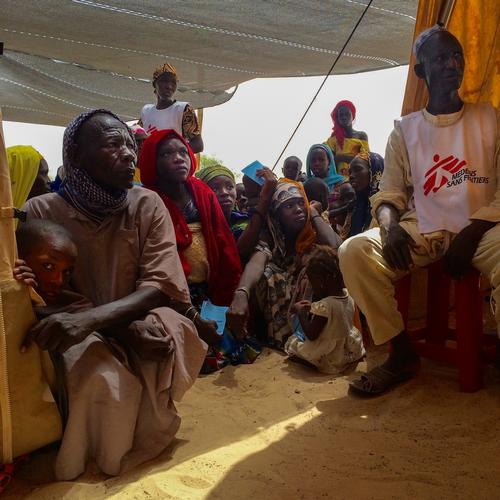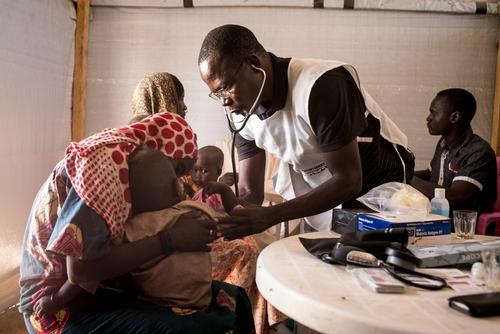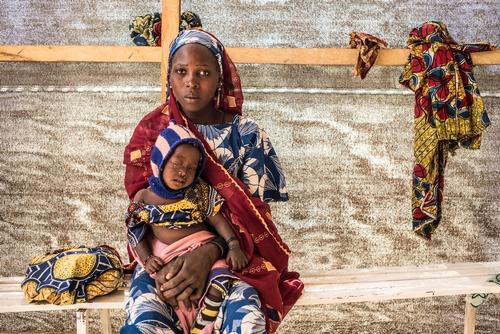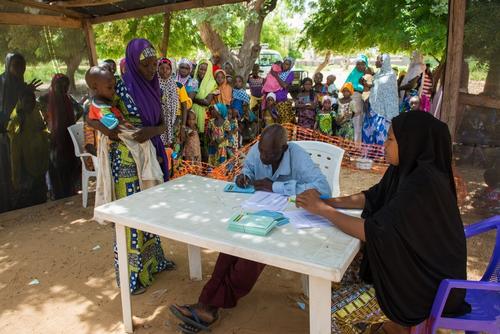The attacks that occurred on 3 June 2016 in Bosso, a town in the region of Diffa, caused several tens of thousands of people to take to the road. For many, it was the second time that they had been displaced because of violence related to the group ‘Islamic State West Africa Province’, better known as Boko Haram.
In the first few days following the attacks, the inhabitants of Bosso and its environs set off on foot to search for a safe place to settle. Climate conditions in the region are extreme, with temperatures close to 45 degrees.
The primary concern of humanitarian organisations has been to locate and provide assistance to displaced people. MSF and other organisations in Diffa have identified three main sites where those displaced have moved to: the village of Kintchandi and the Garin Wanzam site (located some 50 kilometres to the west of Bosso) and Diffa, the administrative centre of the region, which is 100 kilometres away from Bosso. According to the authorities, 40,000 people fled after the attacks.
Activities at the three main sites for displaced people
Since 7 June, MSF has been providing water and healthcare to those living at the Garin Wanzam site and in Kintchandi, where there are several tens of thousands of displaced people, and the organisation is carrying out similar activities in the city of Diffa, where there are about 7,100 displaced people, according to the authorities.
“The priority need is water,” says Souleymane Ba, who is coordinating MSF’s activities in Garin Wanzam and Kintchandi. “Two vehicles equipped with several 120-litre buckets are going round the sites, but it is not enough. We will install water pockets at three locations that will be permanently supplied by wells at another location.” MSF has also established two mobile clinics at both sites and supports the Kintchandi health centre where it carries out “a hundred visits per day; at the outset, the organisation dealt with many dehydrated people.”
In Diffa, most of the displaced people are living with host families. A small number found refuge in schools and in plots of land that the inhabitants made available to them. “Those arriving do not have access to free healthcare. They need water, food and shelter,” explains Omari i Mwinyi, who coordinates MSF’s activities in the city. MSF works in two healthcare centres located in areas where there are many displaced people.
Much remains to be done
“Our concern is that there are still a lot of people who have not been located, and no one can say for sure that people are going to remain where they are. People are still moving because of insecurity and because they need to find a source of income. They are divided between visiting the sites where there is humanitarian assistance and going somewhere where they will be able to help themselves, i.e. where they have their field, or in the village,” explains Elmounzer Ag Jiddou, MSF’s head of mission in Niger. It is difficult to provide assistance to a population in motion. The construction of latrines, for example, requires several weeks of planning, and poor sanitation practices may result in diseases or even epidemics. The rainy season is approaching, with its stagnant water and unhealthy risk of malaria cases, which makes matters worse. “There must be coordinated action by the aid organisations and the authorities in order to enable the refugees to gain stability, and be better placed to receive help.”

Before the attack in Bosso, the region of Diffa had already received more than 240,000 displaced people who had fled violence related to the Islamic State West Africa Province. MSF has carried out more than 16,500 healthcare consultations in the region during the month of May. The organization is also providing assistance in the mother and child healthcare centre in Diffa, in the health centre in Ngarwa, in the Assaga camp, and in the commune in Chétimari (all sites located in Diffa district), as well as in several healthcare centres located along the shores of Lake Chad (in Bilabrim, Ngalewa and Nguigmi). For safety reasons following the attacks in Bosso, MSF stopped activities in Yébi and Toumour, where the organization had carried out on average 6,300 consultations per month. In 2015, MSF undertook over 142,000 medical consultations in the region of Diffa.





